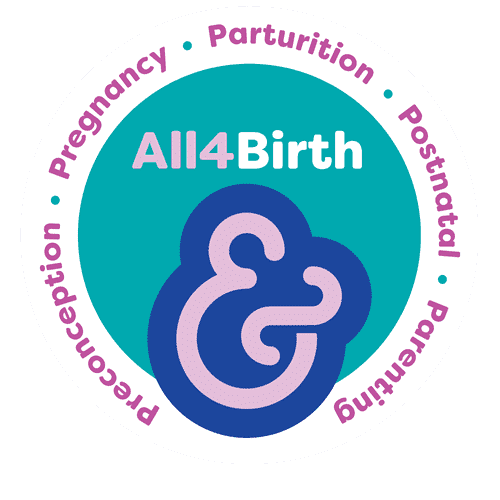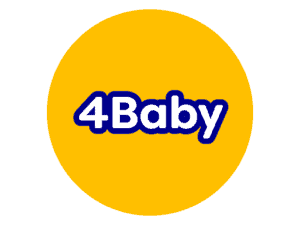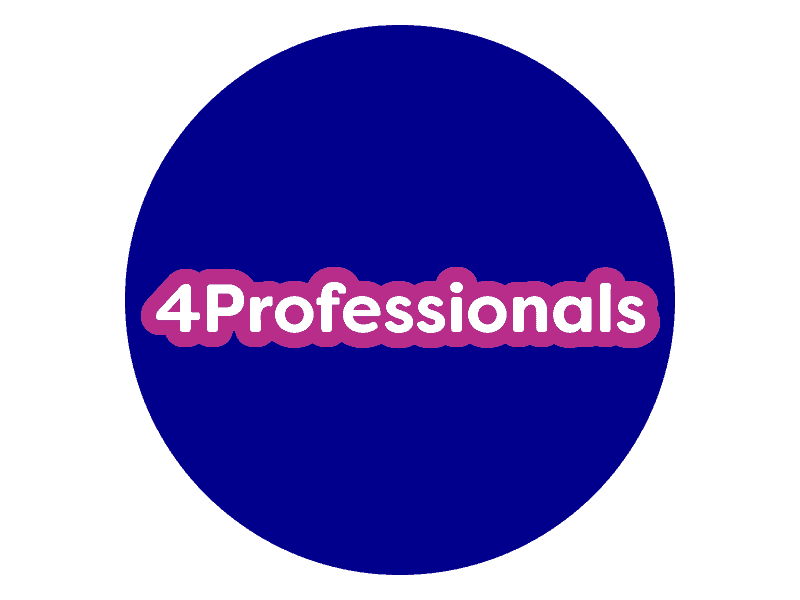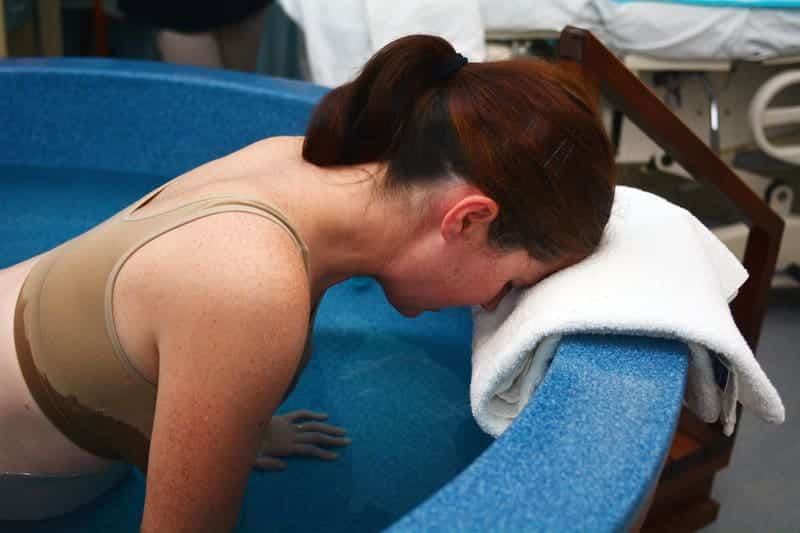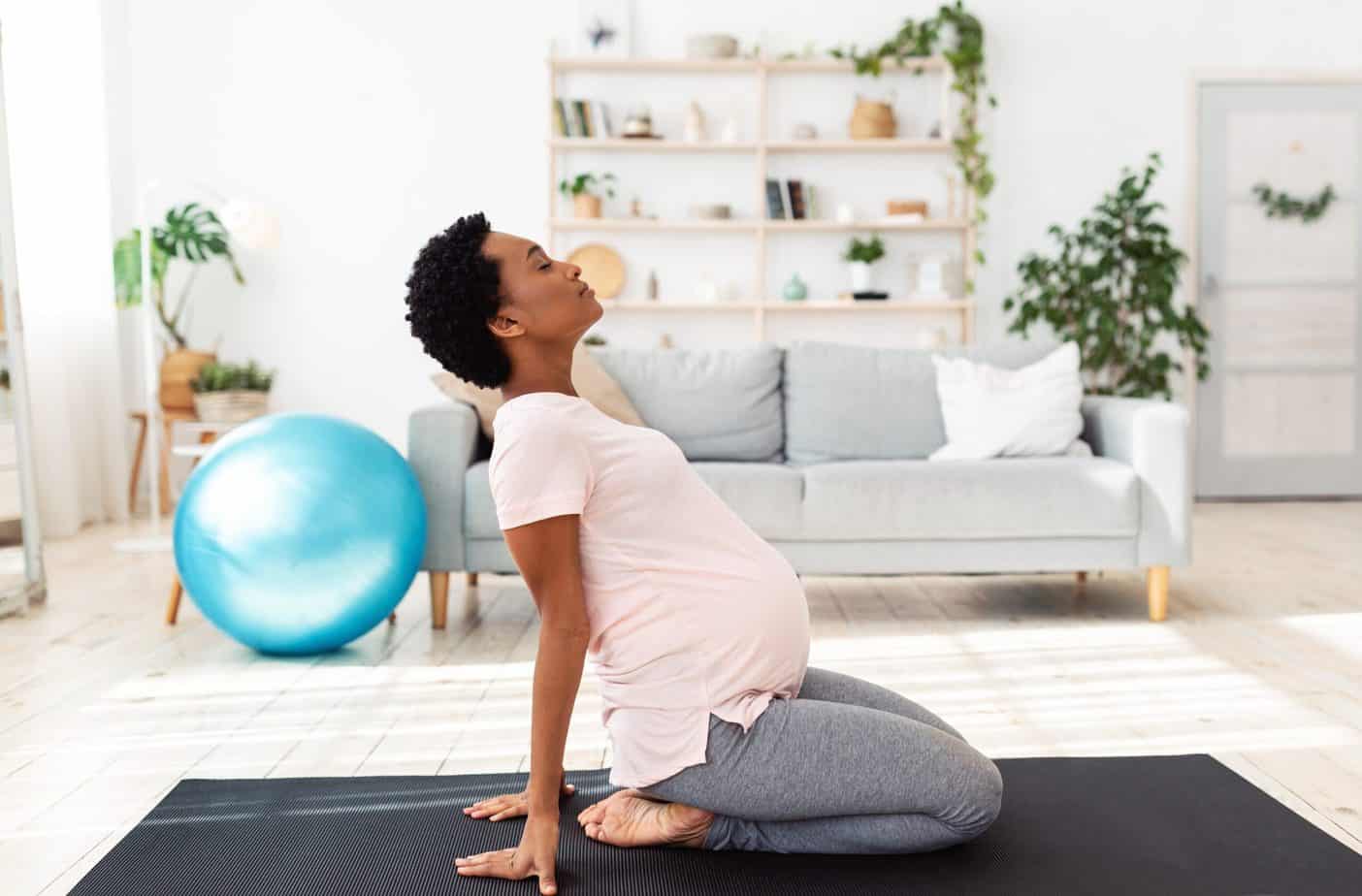Lena Bhohi
Pre and postnatal exercise instructor, personal trainer and mat-based Pilates teacher
Website
Follow me on Facebook and Instagram @lenaandfitter
Summary
There are many mixed and conflicting messages regarding exercising in pregnancy. Exercise during pregnancy is safe and good for both you and your baby. If you exercise before pregnancy, you can continue doing so provided you listen to your body. Antenatal Pilates classes can be a great way to practice low-impact exercise during your pregnancy while working on that mind and body-connection to help prepare you for birth and beyond.
What is Pilates?
Pilates is a form of exercise developed by Joseph Pilates in the early 20th century. It’s a form of low-impact and conditioning exercise where the mind-body connection is integral. Pilates works on building strength and relies on core stability for control of movement. Pilates can help to improve mobility and flexibility too.
There is a set of principles which serve as a foundation for every movement in Pilates. These principles are incorporated into every class:
- Alignment: Correct alignment is essential to achieve better movement and precision
- Breathing: Learn how to breathe efficiently and more effectively to help your body and mind to relax and focus
- Concentration: Thoughtful awareness of the whole body during exercise is key for your mind and body to work together
- Centring/core stability: Pilates focuses on recruiting and strengthening deep core muscles for stability, helping to control movement
- Flow: Pilates moves are controlled, flowing and graceful, lengthening outwards from a strong core. Being able to move efficiently and fluidly is central to performing the exercises correctly
- Coordination: Every move in Pilates should be performed purposefully with control by focusing on the quality and detail of each move
- Stamina: Quality over quantity with every exercise. Mastering each exercise and progressing through more challenging moves help to bring muscular endurance and strength
- Relaxation: Pilates works to relax the mind and body at the start and end of each class. Reducing tension and relaxing the mind to reduce stress, aids in better focus and movement
Why Pilates for Pregnancy?
Your body goes through a huge transition during each trimester and in childbirth. Exercise can help to manage a lot of these changes.
Maintaining a healthy body and mind can have a huge effect on your pregnancy experience. The more active you are throughout your pregnancy, the easier it will be for you to manage all the changes your body will go through. The benefits far outweigh the risks of exercise in pregnancy.
Through exercising in pregnancy, your physiological capacities are increased i.e. better cardiovascular ability, improved muscular strength and endurance – these all help to support you throughout your pregnancy. Exercise can also help to prepare you mentally and physically for childbirth. My classes always spend some time focusing on breathing exercises to teach women to relax their minds and reduce tension and stress.
Benefits of practising Pilates in pregnancy include:
- Maintaining your fitness
- Improved posture
- Improved circulation
- Reduced risk of swelling
- Offset postural imbalances
- Better rib cage mobility to help with breathing
- Reduced risk of lower back pain
- Improved sleep and mood
- Reduced maternal weight gain
- Quicker postnatal recovery
Antenatal Pilates will also focus on strengthening your pelvic floor as well keep it flexible, to help prepare you for managing your labour.
Common questions I’m asked about pregnancy Pilates:
- Do I need to have done Pilates before? You don’t need to have done Pilates before pregnancy. As Pilates is a gentle and low-impact form of exercise, you can take it up at any stage during your pregnancy. It’s always a good idea to speak with your midwife about it before you sign up.
- Is it safe for all stages of Pregnancy? Pilates is a safe and low-impact form of exercise during pregnancy. The benefits far outweigh the risks. It’s always good to check with your GP first before starting something new.
- Will Pilates hurt my baby? Not at all. The exercises are low impact and designed to support you to feel comfortable.
- Can I strengthen my core while pregnant? Yes, you can. A strong core is so important to help support your back and pelvis. There are lots of different core exercises you can do safely in pregnancy. Just be sure to avoid any forward crunches and find an instructor who can teach you to engage your core properly.
- What is the difference between yoga and Pilates?
Both Pilates and Yoga have their benefits and many similarities too. Both are low impact and address that mind-body connection, support breathing, strength, mobility and flexibility. Yoga is an ancient Indian practice that focuses on posture, meditation and breathing while placing your body into many different poses and stretches. Pilates is a much newer style of exercise and evolved from Joseph Pilates in Germany and New York. Pilates focuses on using the mind to control the body, with each move using the core as a powerhouse for the rest of the body. Pilates can be a bit more fast-paced than yoga too.
Conclusion
If you’re thinking about taking up antenatal Pilates, it’s important to find a reputable instructor. They should be qualified in both Pilates and pre and postnatal exercise. Be as honest as you can when completing the health questionnaire the instructor sends you (PARmed-X). This form provides your instructor with a checklist of health conditions, any issues you may have in pregnancy, and whether the exercises they plan are suitable for you. The PARmed-X will also highlight any contraindications (any issues) which may need a referral to a specialist and delay your start to exercising.
Always listen to your body when exercising. Don’t be afraid of asking your instructor as many questions as you like, that’s what we’re here for!
Links to other resources
 Books
Books
The Pilates Bible by Lynne Robinson, Lisa Bradshaw and Nathan Gardner
Pilates for Pregnancy by Anya Hayes
 Film Audio and Apps
Film Audio and Apps
Baby Buddy app, created by the Best Beginnings Charity
 Websites
Websites
References
- Ghandali, N.Y., Iravani, M., Habibi, A. et al. The effectiveness of a Pilates exercise program during pregnancy on childbirth outcomes: a randomised controlled clinical trial. BMC Pregnancy Childbirth 21, 480 (2021). https://bmcpregnancychildbirth.biomedcentral.com/articles/10.1186/s12884-021-03922-2
